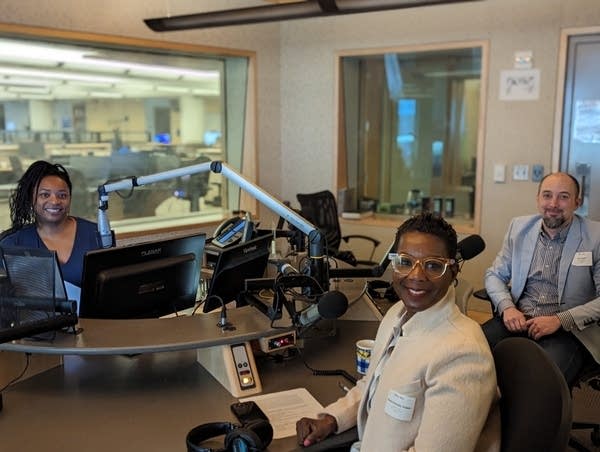How Minnesota's lack of technology education contributes to tech job gap

Sharon Kennedy Vickers, CEO of Software For Good, and Joel Crandall, vice president of talent for the Minnesota Technology Association, with MPR News host Angela Davis in studio.
Danelle Cloutier | MPR News
Go Deeper.
Create an account or log in to save stories.
Like this?
Thanks for liking this story! We have added it to a list of your favorite stories.


